Dovetailed steel with rosewood infill. Original 2 1/8 inch parallel NORRIS iron. All of the original finish remains. The finest example we have ever seen! The plane nor the iron is numbered. NORRIS was established in 1860 and made the world's finest planes until the 1950s. Considered the Rolls Royce of hand planes, a phrase coined in a Fine Woodworking Magazine article in the 1980s. In its day a Norris plane cost 4 times that of a comparable Stanley. The Norris has a much thicker iron and cap iron. It is a heavier plane. Also, the iron sits on wood as opposed to metal. All of these things prevent chatter and create a smoother cut. In 1913 Norris patented his famous adjuster which provides micrometer-like, smooth blade adjustment. In 1922 he patented an improvement to this adjuster. This adjuster allowed Norris to outdistance his product from his competitors. It is still copied today. Dating your NORRIS Pre WW II vs Post WW II: Pre-war planes are better made with better materials. Brazilian rosewood infill. Dovetailed steel construction. Slightly thicker irons 3/16" with larger Norris logos. 13/16" wide to 5/8". Earlier planes: Planes circa 1928 and earlier are found with finial lever cap screws and most often WARD irons. The 1928 Norris catalog shows both finial and flat top cap screws along with Ward and Norris irons. The two aforementioned adjuster patents will also aid accurate dating.
- Gallery
- Description
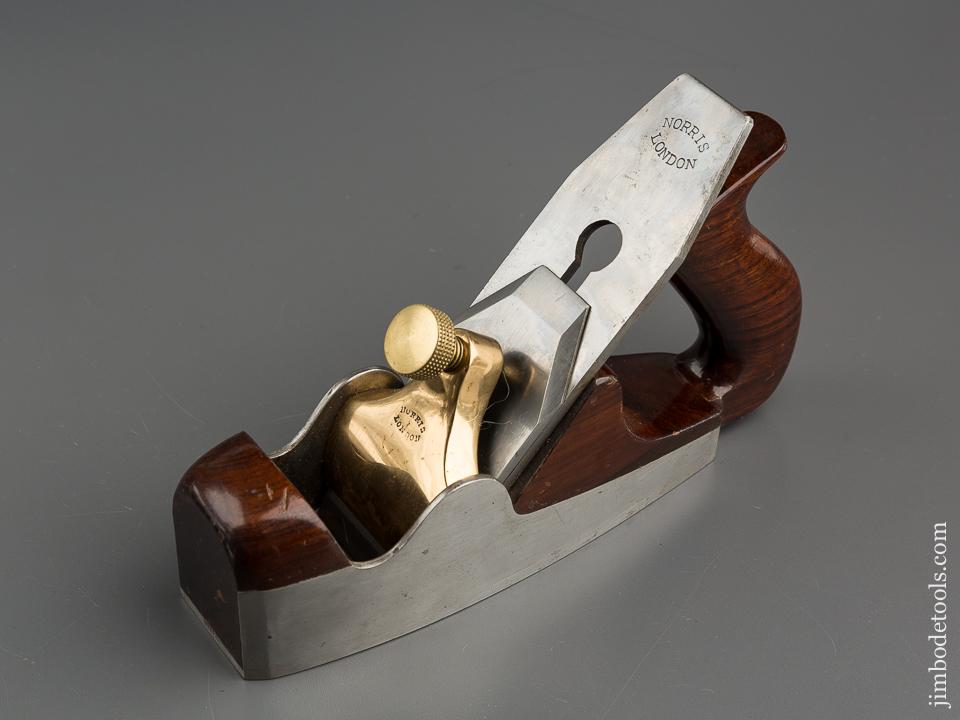
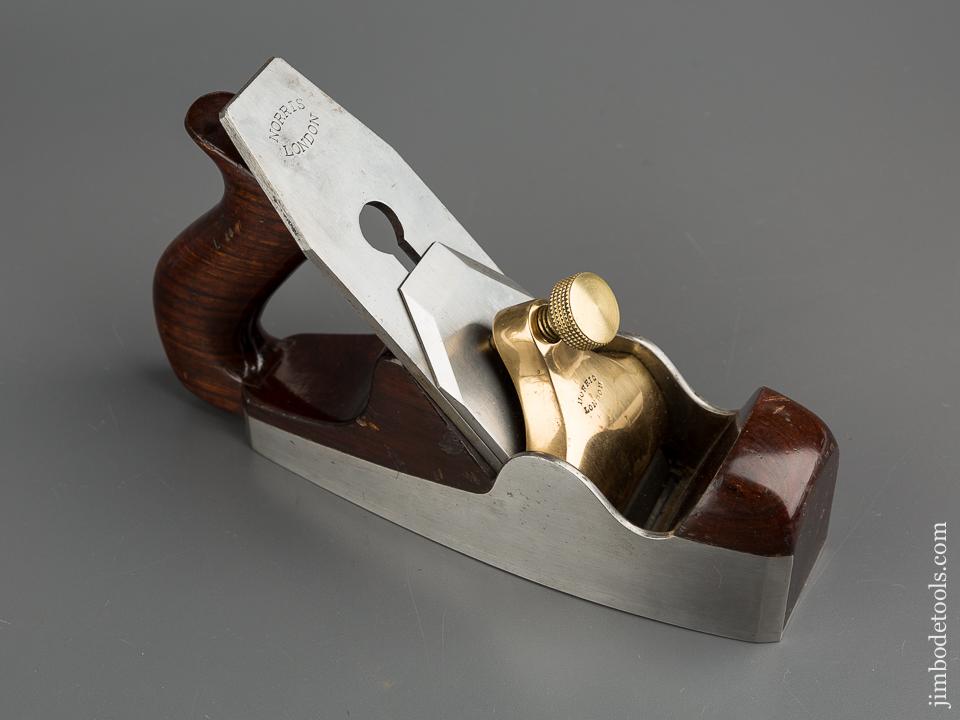
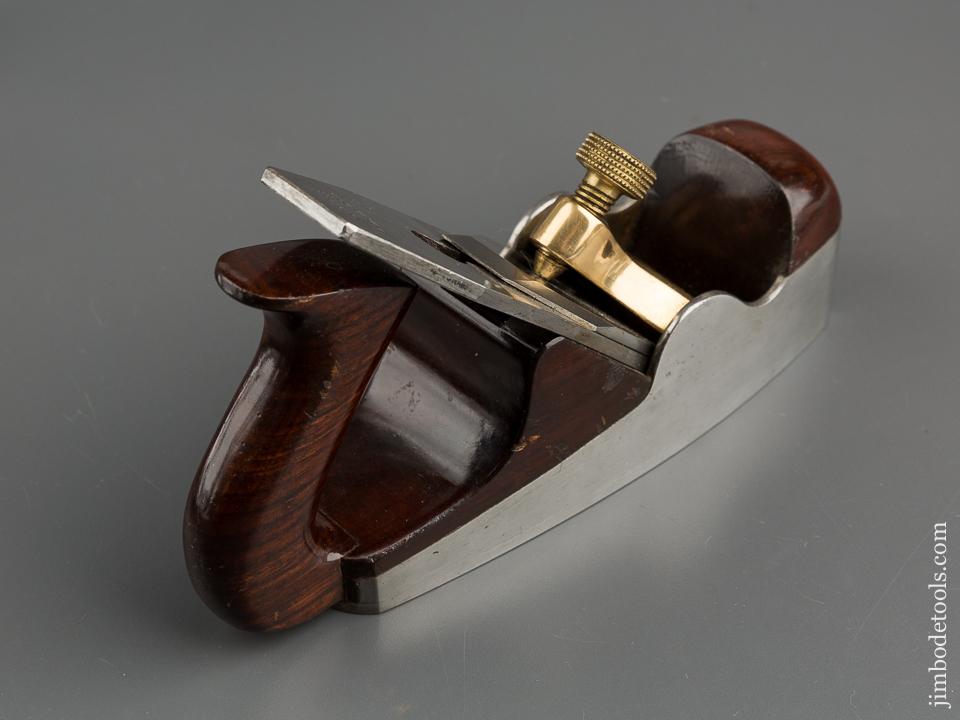
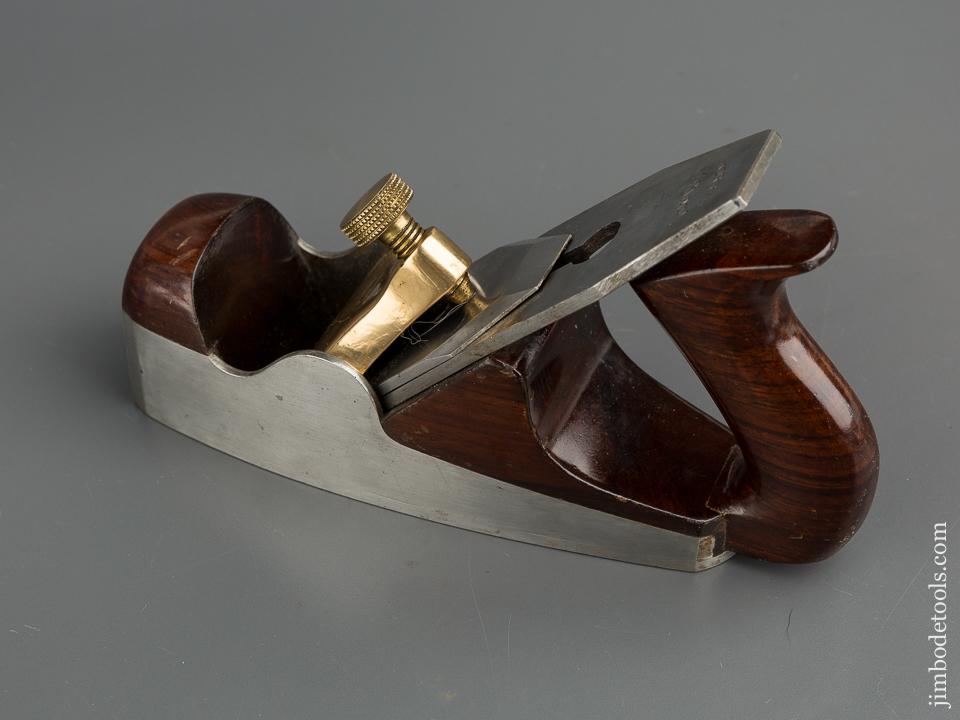
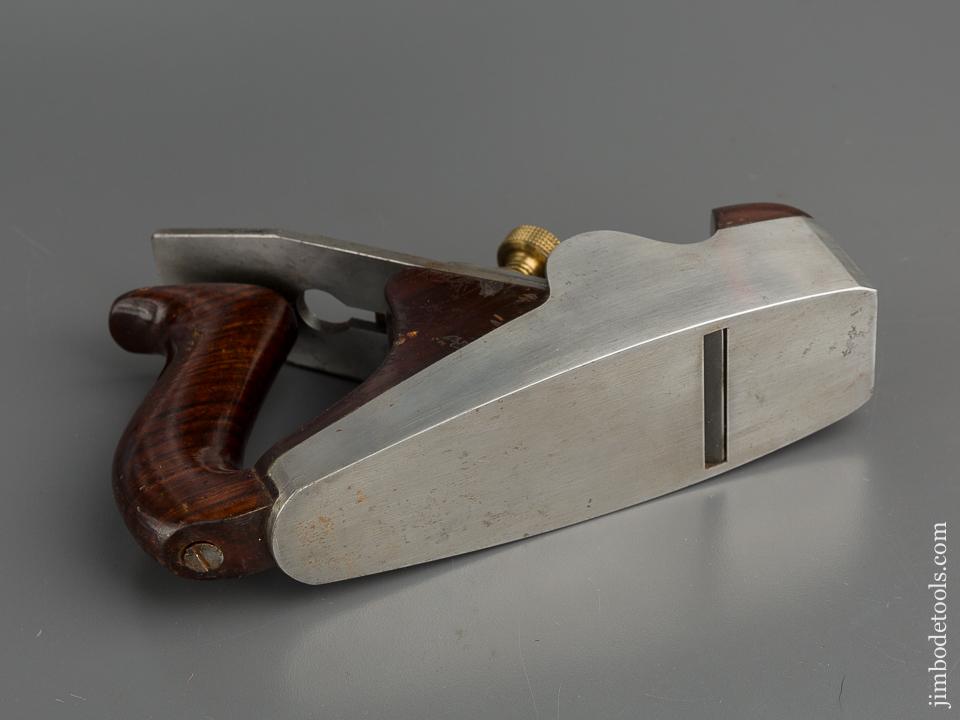
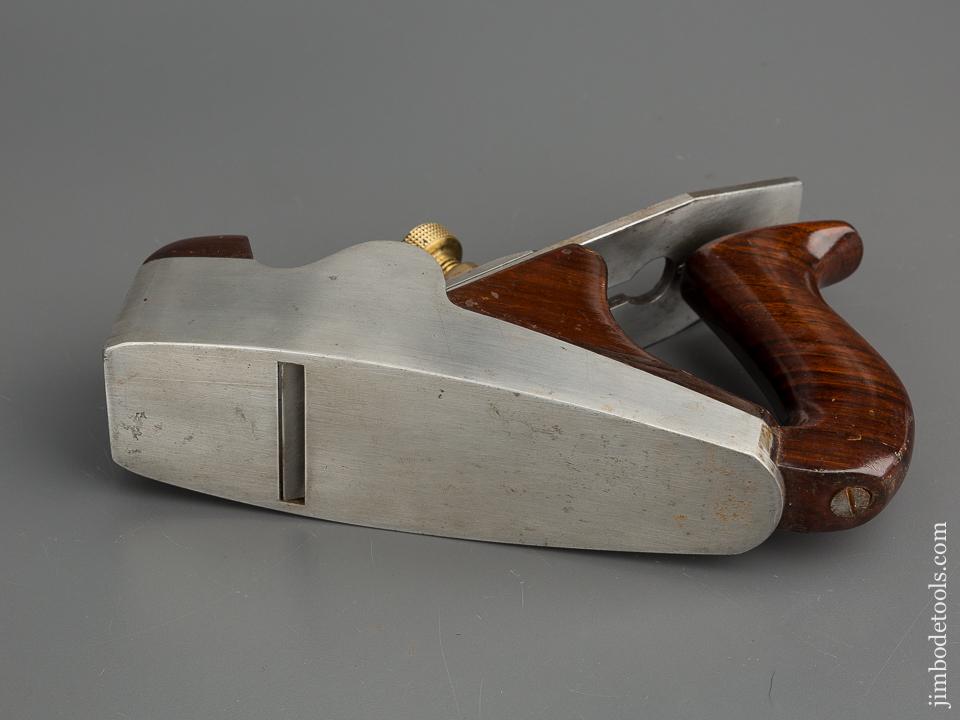
Dovetailed steel with rosewood infill. Original 2 1/8 inch parallel NORRIS iron. All of the original finish remains. The finest example we have ever seen! The plane nor the iron is numbered. NORRIS was established in 1860 and made the world's finest planes until the 1950s. Considered the Rolls Royce of hand planes, a phrase coined in a Fine Woodworking Magazine article in the 1980s. In its day a Norris plane cost 4 times that of a comparable Stanley. The Norris has a much thicker iron and cap iron. It is a heavier plane. Also, the iron sits on wood as opposed to metal. All of these things prevent chatter and create a smoother cut. In 1913 Norris patented his famous adjuster which provides micrometer-like, smooth blade adjustment. In 1922 he patented an improvement to this adjuster. This adjuster allowed Norris to outdistance his product from his competitors. It is still copied today. Dating your NORRIS Pre WW II vs Post WW II: Pre-war planes are better made with better materials. Brazilian rosewood infill. Dovetailed steel construction. Slightly thicker irons 3/16" with larger Norris logos. 13/16" wide to 5/8". Earlier planes: Planes circa 1928 and earlier are found with finial lever cap screws and most often WARD irons. The 1928 Norris catalog shows both finial and flat top cap screws along with Ward and Norris irons. The two aforementioned adjuster patents will also aid accurate dating.





